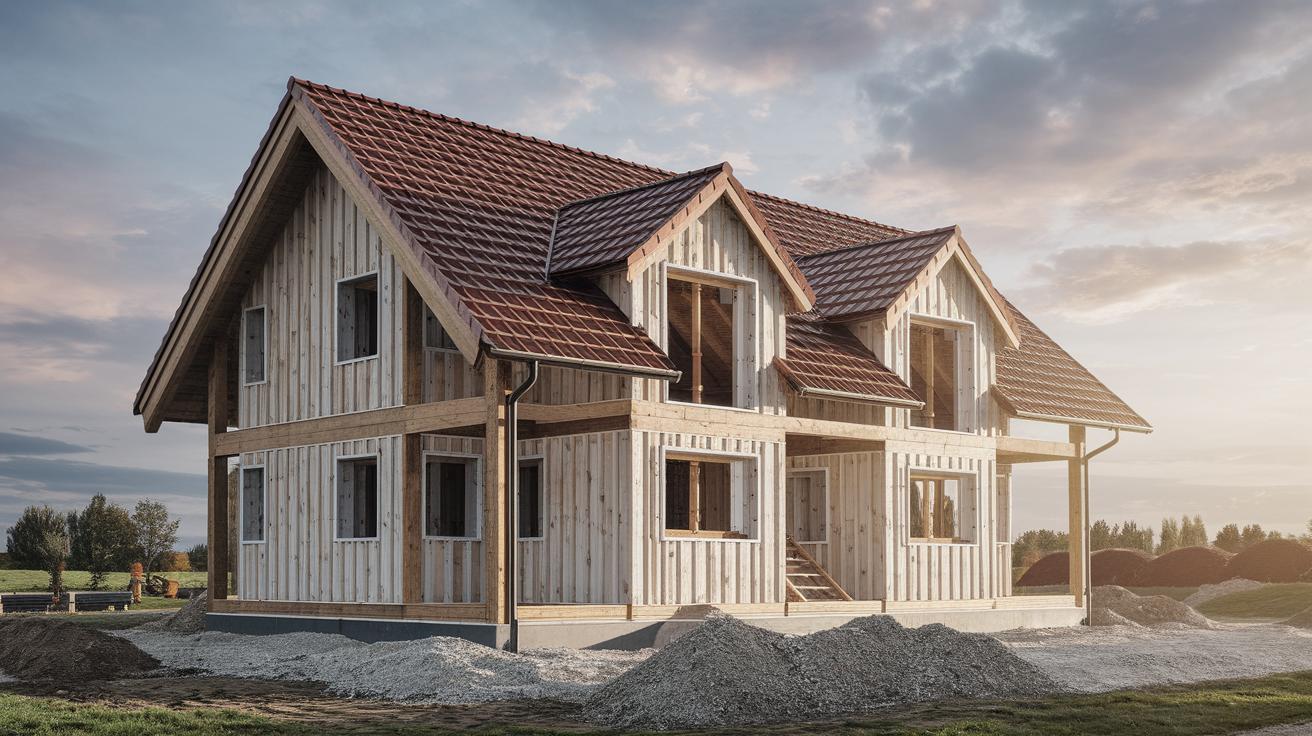How to Choose a Reliable Construction Contractor
Choosing a reliable construction contractor is crucial for the success of any building project. This decision can impact your budget, the quality of the work, and the overall timeline. It’s essential to conduct thorough research and make informed decisions to avoid common pitfalls such as incomplete or poor-quality work and mishandled permits. In this guide, you will learn about the steps to take before hiring a contractor, including the necessary worksheets to prepare, how to interview potential contractors, and which critical questions to ask. We’ll also cover the importance of checking references, understanding the risks of cash deals, and safety concerns associated with accidents and injuries. With these guidelines, you can confidently choose a contractor that suits your project needs and ensures a smooth, successful construction process.
WORKSHEETS
Preparing a worksheet can be an invaluable step in choosing the right construction contractor. This tool acts as a roadmap, helping you outline your project’s scope, budget, and expectations. Start by capturing essential details such as project timelines, specific requirements, and any personal preferences you may have. This organized format ensures that nothing is overlooked and provides a clear idea of what you are aiming to achieve.
Your worksheet should include estimated costs, building materials, and your desired outcome. It can help you compare contractors on a like-for-like basis. By establishing a standardized worksheet, you can comprehensively evaluate different proposals and make an equitable decision. This groundwork will also be useful during interviews to verify consistency in contractors’ responses and to prevent miscommunications down the line.
Interview the Contractor
Once you’ve established a pool of potential contractors through preliminary research, the next step is to interview them. This stage is crucial as it allows you to gauge their professionalism, communication skills, and expertise. During the interview, observe how the contractor addresses your questions. Are they patient and thorough, or do they rush through explanations?
The interview is also an opportunity to discuss past projects and confirm their ability to handle your specific type of construction. Establish a rapport with the contractor, ensuring both parties can work together harmoniously. Remember, this professional relationship will likely last several months, so it’s important to choose someone you trust and can communicate openly with.
What Questions to Ask
Knowing the right questions to ask can make all the difference in selecting a reliable contractor. Start with inquiries about their experience and past work. Specific questions like, “Can you provide examples of similar projects you’ve completed?” or “How do you handle unforeseen challenges?” can elicit informative responses.
Inquire about their licensing and insurance to confirm compliance with legal standards. Additionally, ask about warranties offered on their work, and get a clear understanding of their payment terms and conditions. Lastly, a crucial question to ask is about their current workload; this helps you determine if they can reasonably meet your project deadlines.
Checking Contractor References
Checking references is a critical step that often gets overlooked. Positive reviews and first-hand recommendations from past clients are powerful indicators of a contractor’s reliability and quality. Ask the contractor for a list of references and follow up by contacting them. Inquire about their satisfaction level and whether they encountered any issues during the process.
Consider visiting past job sites if possible to evaluate the workmanship quality yourself. Online platforms such as review websites and social media can also provide unfiltered feedback from former clients, giving you a broader picture of what to expect.
Stay away from “cash deals” and anyone who offers one
While seemingly attractive, cash deals promised by contractors can be a red flag. Such arrangements often lack the protections of a formal contract and can leave you vulnerable if things go awry. Without a written agreement, there’s little recourse to demand accountability for the work provided or challenge any future issues.
Always insist on a legally binding contract that outlines the scope of work, payment schedules, and deadlines. This document protects both you and the contractor, ensuring that all parties understand their responsibilities and preventing disagreements down the line.
Incomplete or Poor-Quality Work
No client wants to face incomplete or subpar work from their contractor. Setting clear expectations via a comprehensive contract can mitigate this risk. Ensure that the contract specifies the construction standards and outline steps to be taken in case of disputes over work quality.
Regular site visits and inspections during the construction can also help catch potential issues early. Engage a professional inspector if necessary to assess the quality of the work being done. Open, consistent communication with your contractor is key to ensuring any emerging problems are promptly addressed.
Accidents or Injuries in Your Home
The construction industry is fraught with risks, and accidents may occur. Contractors should have a comprehensive safety plan in place, minimizing risks and protecting workers, the site, and you. Discuss these safety measures with your contractor before commencing any work.
It’s crucial to confirm that your contractor holds adequate insurance covering potential property damage and worksite injuries. Their insurance offers protection and should shield you from any liability arising from accidents during the construction process.
Injured Workers
In the event of a worker injury, it’s essential to understand your legal obligations and protections. Contractors should possess workers’ compensation insurance to cover medical expenses and lost wages for injured employees.
By confirming the contractor’s insurance status and ensuring it covers worker injuries, you protect yourself from potential legal and financial ramifications. Remember, a responsible contractor will readily provide proof of insurance and emphasize safety as a priority on your project.
Future Prospects
Selecting a reliable construction contractor can significantly affect the project’s outcome and your peace of mind. By following the steps outlined—preparing worksheets, conducting interviews, asking strategic questions, checking references, and keeping clear of cash-only deals—you position yourself for success. Properly chosen contractors bring the promise of quality and professionalism, ensuring your construction project is completed to the highest standard.
| Aspect | Key Points |
|---|---|
| Worksheets | Outline project scope, budget, and timelines for consistent evaluations. |
| Interviewing Contractors | Gauge professionalism and communication; ensure they fit your project. |
| Questions to Ask | Experience, licensing, workload, and warranties are crucial inquiries. |
| Checking References | Contact past clients and review previous work to ensure reliability. |
| Cash Deals | Avoid to ensure formal agreement and protections are in place. |
| Work Quality | Ensure contracts specify standards, conduct inspections during work. |
| Accidents/Injuries | Have safety plans and confirm contractor insurance for protection. |
| Injured Workers | Workers’ compensation must be covered by the contractor. |


